Friday, April 4, 2025. Annette’s Roundup for Democracy.
Not in my name. American Jews reject Trump’s tactics.
Trump’s Fight Against Antisemitism Has Become Fraught for Many Jews.
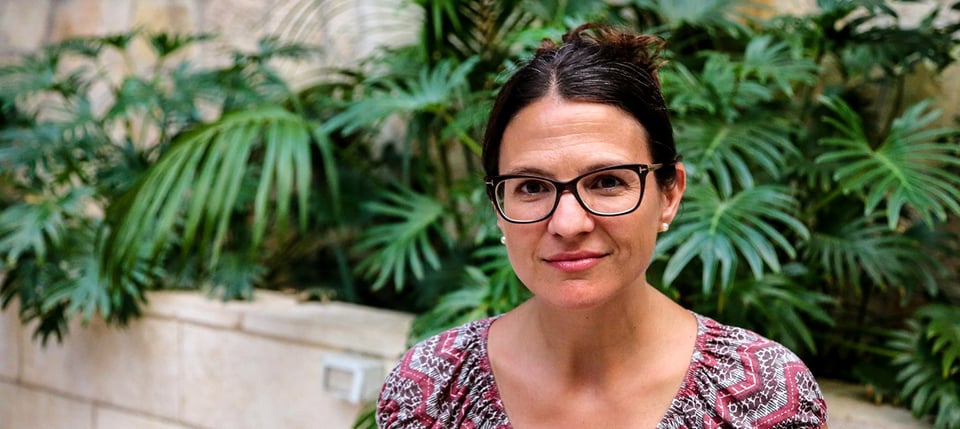
“This is not going to protect Jews,” Rabbi Sharon Brous said. “We’re being used.”
Rabbi Sharon Brous was growing increasingly alarmed at the Trump administration’s strong-arm tactics, like its attacks on higher-education funding and bullying of law firms, all in the name of protecting Jews.
So early last month, she delivered an impassioned sermon titled “I Am Not Your Pawn” to her Los Angeles congregation. Hours later, the next shoe dropped. Immigration agents began detaining activists and foreign students who had been involved in pro-Palestinian protests.
“This is not going to protect Jews,” Rabbi Brous said in an interview. “We’re being used.”
Across the country, American Jews have watched with alarm or enthusiasm as an effort to address campus unrest over the war in Gaza has transformed into a campaign to deny elite universities billions of dollars in funding, to press major law firms into pro bono work on “antisemitism” and to deport foreign students even tangentially involved in the protests last spring.
“We have to combat antisemitism as vigorously as we can,” said Matt Brooks, the chief executive of the Republican Jewish Coalition, adding that with President Trump in office, there is “a new sheriff in town.”
The divisions mirror those that have long split Jewish communities and have grown deeper since the Hamas attacks of Oct. 7, 2023, and the broad campus protests that followed Israel’s devastating response in Gaza.
But where most Jews share concerns about antisemitic speech in some of the protests, many within the community have become convinced that things may have gone too far.
A video of plainclothes immigration agents surprising and arresting a Turkish graduate student at Tufts University on the streets of Somerville, Mass., had particularly disturbing resonance for some in the Jewish community. The student, Rumeysa Ozturk, had co-written an opinion essay for a student newspaper demanding the university take a stand against Israel’s war in Gaza.
For many in a community that has suffered more than its share of unjust arrests, disappearances, deportations and deadly violence over the centuries, the video evoked painful memories from Jewish history. That it was done in the name of defending Jews made it worse. Two pro-Israel groups, Canary Mission and Betar, have even been involved in singling out pro-Palestinian protesters to target.
“I stood up. I was sitting down. I stood up involuntarily,” said Orna Guralnik, an Israeli American clinical psychologist and therapist, describing her reaction to watching the video. “It’s outrage and fear.”
Such arrests have “woken people up to the cynical way that the fight against antisemitism is used,” added Dr. Guralnik, who has gained fame with her television show “Couples Therapy.” “It contrasts everything that a liberal person believes in.”
In her practice, she said her American Jewish patients were “confused and really conflicted.”
Though the federal crackdown has so far targeted critics of Israel, some think the Trump administration’s actions uncomfortably echo previous eras of bigoted nationalism that gave way to overt antisemitism.
“Find me a moment in history when Jews anywhere benefited from a mix of rampant nationalism and repression,” wrote the journalist Matt Bai in a Washington Post opinion piece on Tuesday. “You’ll be looking awhile.”
By saying that the harsh actions of the federal government have been in the name of protecting the Jewish community, the Trump administration has, intentionally or not, put a spotlight on Jews that makes many uncomfortable.
“Anytime you put Jews in the middle on an issue, it’s not good for the Jews,” said Jonathan Jacoby of the Nexus Project, a progressive Jewish group that has been searching for a way to combat antisemitism without suppressing political debate. “That’s a classic antisemitic position that antisemites like to put Jews. So they can be scapegoated.”
At the same time, the Trump administration continues to enjoy the backing of many Jewish groups, including those in the mainstream of social and political life.
The Anti-Defamation League, which for more than a century has worked to combat antisemitism, quickly put out a statement in support of the arrest last month of an activist at Columbia University, Mahmoud Khalil, saying his detention “serves as a deterrent to others who might consider breaking the law on college campuses or anywhere.” The statement said it assumed Mr. Khalil would be given “due process.”
Mr. Khalil, a legal permanent resident from Syria with a pregnant American wife, has not been charged with a crime. He has been held for nearly three weeks in a facility in Louisiana, where he was taken after his arrest on March 8 in New York.
The Orthodox Union, an umbrella organization representing religious Jews, has been broadly supportive of the Trump administration’s actions. In a statement, its executive vice president, Rabbi Moshe Hauer, called for the fight against the “anarchy, hate, intimidation, and violence that have infected the campuses” to be carried out “the American way, firmly, resolutely, legally.”
A White House spokesman did not immediately respond to a request for comment.
Mr. Brooks, of the Republican Jewish Coalition, said that the answer to antisemitism cannot be doing nothing and called the notion that the federal government’s actions put American Jews in any greater danger “absolutely absurd.”
On the streets of American cities with large and diverse Jewish communities, feelings have been much more ambivalent.
Rabbi Jeremy Kalmanofsky, who leads a socially progressive but religiously Conservative Jewish synagogue in Manhattan, said he had been stopped days ago on the sidewalk by a congregant who expressed how distressed she was that “people are being disappeared from street corners in the name of fighting antisemitism.”
My community is very, very skeptical of the genuineness of the administration’s antisemitism rhetoric,” Rabbi Kalmanofsky said.
“I think that the Jewish people are the worse for the wear if the foundations of a constitutional order and civil rights and civil liberties and higher education are diminished,” he said, referring to attacks on the legal system and universities.
Amy Spitalnick, chief executive of the Jewish Council for Public Affairs, a pro-democracy group, said she also doubted the motivation behind the push to combat antisemitism because it has involved the selective application of due process rights based on people’s identities and beliefs.
“It’s about exploiting concerns about antisemitism to undermine democracy,” she said.
But saying so publicly has been an occasionally fraught experience.
Rabbi Kalmanofsky posted on Facebook his objection to the treatment of Mr. Khalil, not because he agreed with the activist’s views on Israel, which he said he finds objectionable, but because his arrest represented a potential threat to everyone.
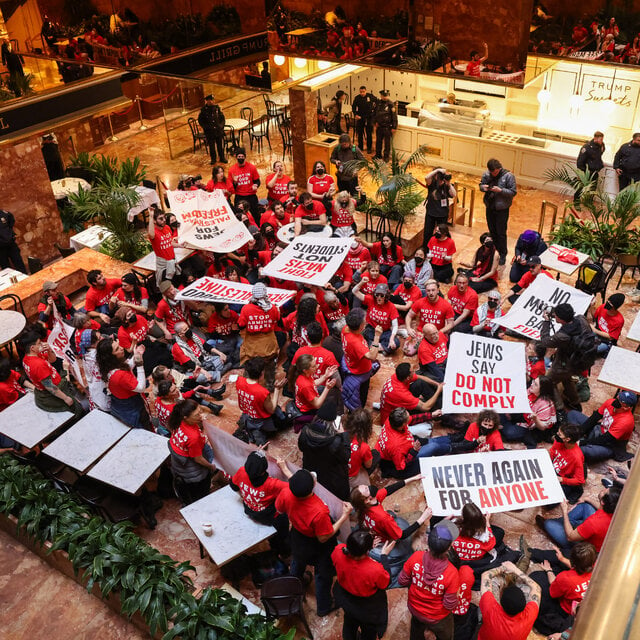
Protesters organized by Jewish Voice for Peace demonstrated inside Trump Tower last month in Manhattan.
“If this legal resident can be arrested and deported for exercising First Amendment rights, then anyone can,” he wrote, offering “kudos” to the federal judge in the case who blocked the deportation and is also a member of his synagogue.
The at-times heated discussion over his post surprised the rabbi.
“The correct question is does America benefit from him being here,” one commenter replied, speaking of Mr. Khalil. “If the answer is no, then he should be deported.”
In Los Angeles, Rabbi Brous of IKAR, a nondenominational Jewish congregation, lamented that for many people, Jewish or not, it has become difficult to hold two competing ideas at the same time, and far easier to retreat into defined ideological camps.
She said she wanted to be clear that two things were true: “There is a real antisemitism problem in our time and the universities have become very fertile ground” for its normalization. And, she added, this administration’s attacks “do not emerge from a genuine desire to keep Jews safe.”
“What may feel today like a welcomed embrace is actually putting us at even greater danger,” she said in her sermon on March 8.
One of her congregants, Shifra Bronznick, watched online from New York, and it resonated deeply with her. She said she told dozens of people about it, telling them: “You must listen to this sermon.” (New York Times).
Rabbi Brous’s Purim Sermon.👇 20 minutes.
Listen. You won’t be sorry.
If you want to echo Rabbi Brous, why not contact America’s top Jewish elected official, Senator Charles Schumer of New York.
I did yesterday. I said that I looked to him and other Jewish Democratic leadership to speak up on this subject.
“Not in Our Name.”
I asked that he consider organizing all Jewish Elected Officials across the country to speak on this topic in the Congress and in State Houses across America on a day to be chosen, with ideally 50-100 guest Rabbis joining that day as possible in government places or in a Washington Press Conference.
“Not in Our Name.”
I added that I hoped the “Not in Our Name” speakers including him will denounce Representative Elise Stefanik of New York State, Trump’s Jewish lapdog and collaborator, for her role in using the pretense of antisemitism as a weapon to support the destruction of Democracy.
Also ask him why Democratic leadership didn’t condemn GOP Congressman Keith Self who quoted Hitler’s Chief Propaganidist Joseph Goebbels in a House committee hearing. What can he do about that!
Feel free to contact him too by phone, text,letter. Senator Chuck Schumer of New York
Why Trump loves tariffs.
Senator Chris Murphy from Connecticut explains.
“… tariffs are a tool to collapse our democracy.”
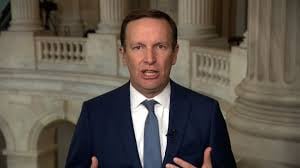
Those trying to understand the tariffs as economic policy are dangerously naive. No, the tariffs are a tool to collapse our democracy. A means to compel loyalty from every business that will need to petition Trump for relief. 1/ A 🧵 to explain his plan and how we fight back.
— Chris Murphy (@chrismurphyct.bsky.social) 2025-04-03T03:29:40.005Z
2/ This week you will read many confused economists and political pundits who won’t understand how the tariffs make economic sense. That’s because they don’t. They aren’t designed as economic policy. The tariffs are simply a new, super dangerous political tool.
— Chris Murphy (@chrismurphyct.bsky.social) 2025-04-03T03:29:40.023Z
3/ You see, our founders created a President with limited and checked powers. They specifically put the power of spending and taxation in the hands of the legislature. Why? Because they watched how kings and despots used spending and taxes to control their subjects.
— Chris Murphy (@chrismurphyct.bsky.social) 2025-04-03T03:29:40.049Z
4/ British kings used taxation to reward loyalty and punish dissent. Our own revolution was spurred by the King’s use of heavy taxation of the colonies to punish our push for self governance. The King’s message was simple: stop protesting and I’ll stop taxing.
— Chris Murphy (@chrismurphyct.bsky.social) 2025-04-03T03:29:40.091Z
5/ Trump knows that he can weaken (and maybe destroy) democracy by using spending and taxation in the same way. He is using access to government funds to bully universities, law firms and state and local governments into loyalty pledges.
— Chris Murphy (@chrismurphyct.bsky.social) 2025-04-03T03:29:40.109Z
6/ Healthy democracies rely on an independent legal profession to maintain the rule of law, independent universities to guard objective truth and provide forums for dissent to authority, and independent state/local government to counterbalance a powerful federal government.
— Chris Murphy (@chrismurphyct.bsky.social) 2025-04-03T03:29:40.126Z
7/ But the private sector also plays a rule to protect democracy. Independent industry has power. The tariffs are Trump’s tool to erode that independence. Now, one by one, every industry or company will need to pledge loyalty to Trump in order to get sanctions relief.
— Chris Murphy (@chrismurphyct.bsky.social) 2025-04-03T03:29:40.147Z
8/ What could Trump demand as part of a quiet loyalty pledge? Public shows of support from executives for all his economic policy. Contributions to his political efforts. Promises to police employees’ support for his political opposition.
— Chris Murphy (@chrismurphyct.bsky.social) 2025-04-03T03:29:40.167Z
9/ The tariffs are DESIGNED to create economic hardship. Why? So that Trump has a straight face rationale for releasing them, business by business or industry by industry. As he adjusts or grants relief, it’s a win-win: the economy improves and dissent disappears.
— Chris Murphy (@chrismurphyct.bsky.social) 2025-04-03T03:29:40.191Z
10/ And once Trump has the lawyers, colleges and industry under his thumb, it becomes very hard for the opposition to have any viable space to maneuver. Trump didn’t invent this strategy. It’s the playbook for democratically elected leaders who want to stay in power forever.
— Chris Murphy (@chrismurphyct.bsky.social) 2025-04-03T03:29:40.210Z
One more thing.
Yes, this really happened.
Newsmax team - and Rudy Giuliani - get to ring the opening bell on a day when Trump's tariffs crater the stock market. pic.twitter.com/QuzQXjqyRk
— Anthony Zurcher (@awzurcher) April 3, 2025
Yes, Republican ranks in the Congress are splintering.
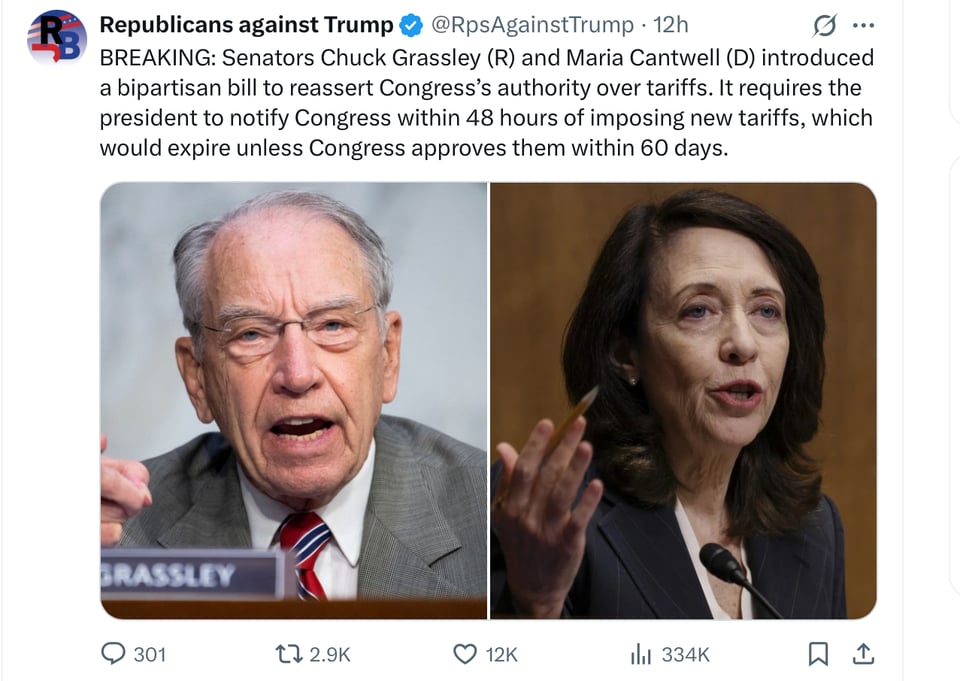
This is the beginning of a massive fall of MAGA.
— Adam Kinzinger (Slava Ukraini) 🇺🇸🇺🇦 (@AdamKinzinger) April 4, 2025
No amount of division, fear mongering, lies, and cheap lines will overcome the fact that you just took many people’s prosperity just because it makes you feel powerful.
Mark my words, the beginning of the end.
No tariffs on Russia. Hmmm
— Adam Kinzinger (Slava Ukraini) 🇺🇸🇺🇦 (@AdamKinzinger) April 2, 2025
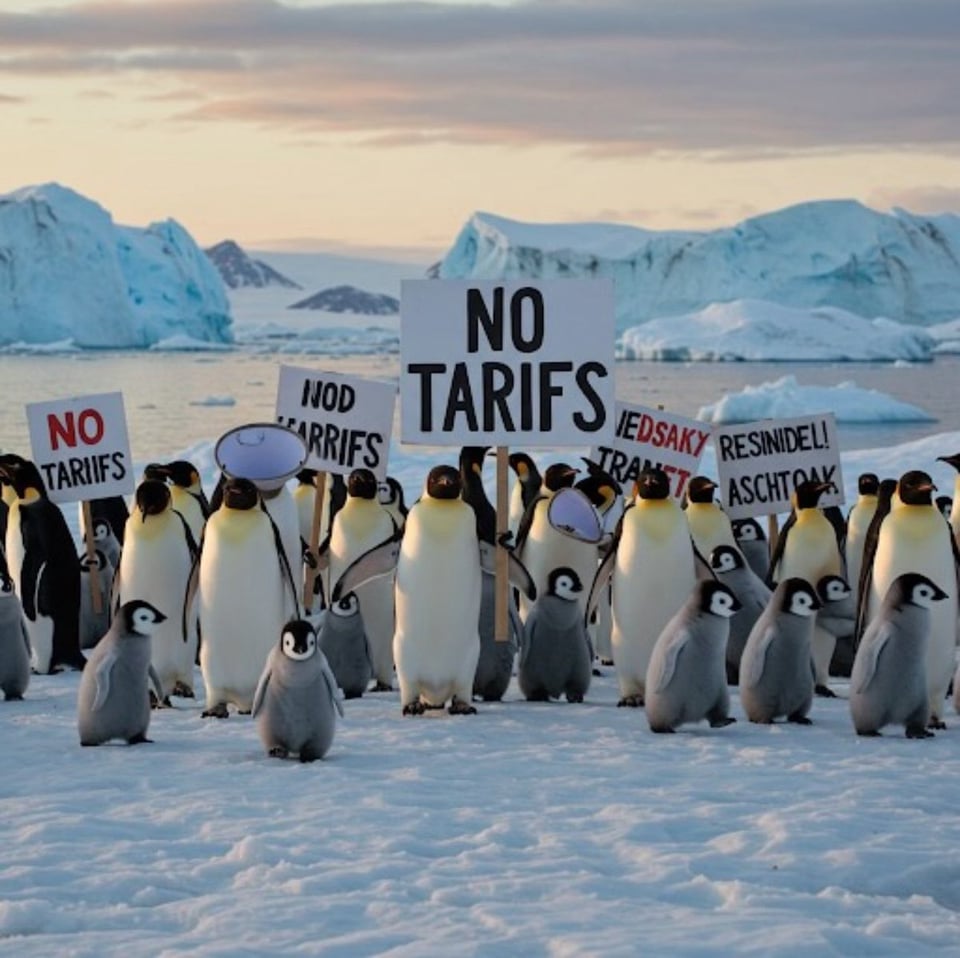
College Presidents know how to fight back. Meet Michael Roth of Wesleyan University.
A UNIVERSITY PRESIDENT MAKES A CASE AGAINST COWARDICE.
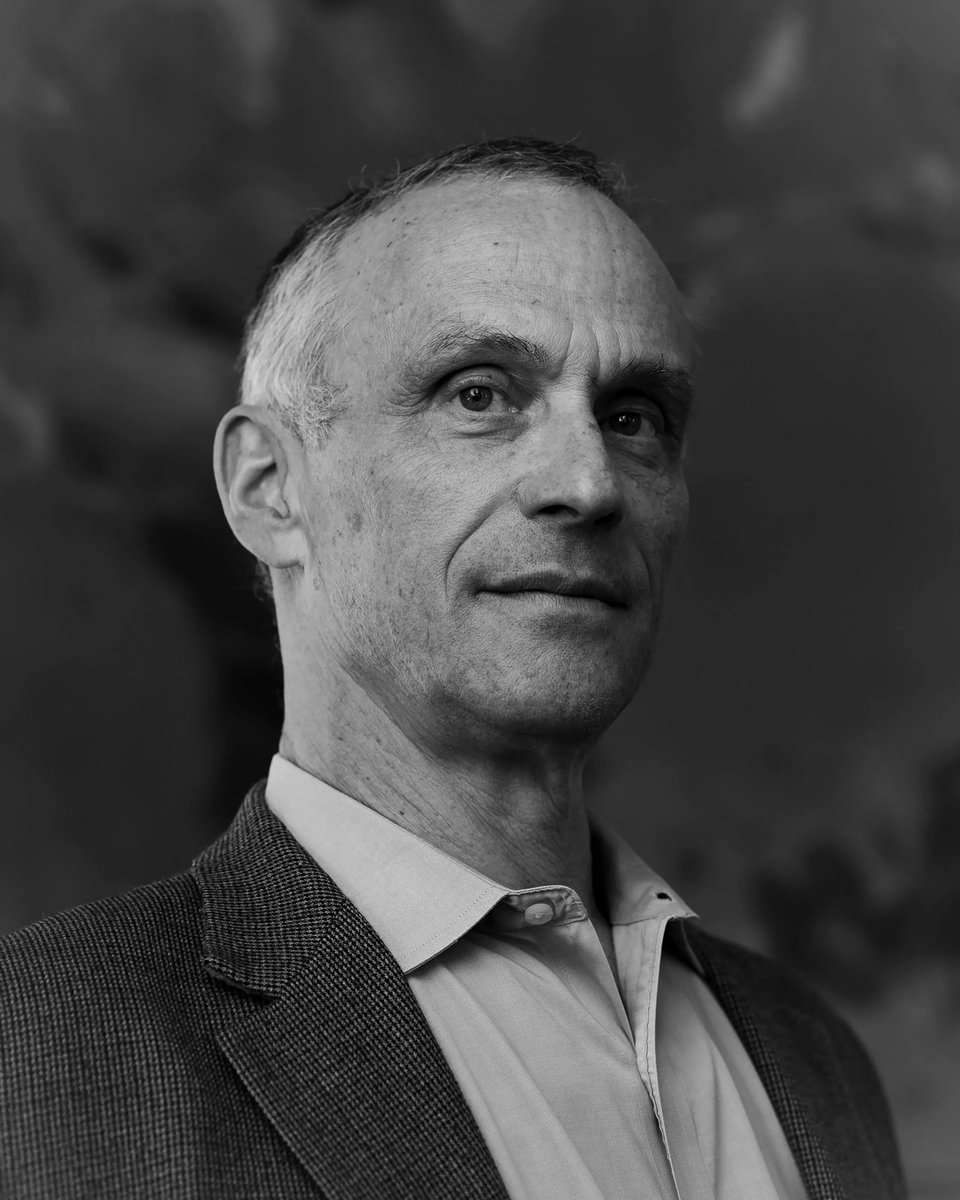
The Trump Administration wants to punish schools for student activism. Michael Roth, of Wesleyan, argues that colleges don’t have to roll over.
Last Friday could have passed for a lovely spring day on the Connecticut campus of Wesleyan University. Students with books and laptops dotted a green hillside; flocks of admissions visitors trailed tour guides; baseball season had just begun, and practice was under way. It was almost possible to forget the grim straits of American higher education in 2025.
Colleges and universities have been early targets of the second Trump Administration. In the past month, the Administration has announced it will investigate diversity, equity, and inclusion efforts at more than fifty schools; cut hundreds of millions of dollars in federal funding from such institutions as Johns Hopkins and the University of Pennsylvania; and sought to deport international students involved in pro-Palestinian activism. Columbia received a letter from the federal government issuing demands—which included making changes to discipline and admission policies, and placing the department of Middle East, South Asian, and African Studies under “academic receivership”—to be met as a “precondition” for negotiating the restoration of four hundred million dollars in federal funding. The university agreed to these demands the following week; the week after that, the university’s president resigned.
Columbia’s capitulation was in line with a general trend toward circumspection. The memory of Congress grilling university presidents in 2023 seems to be fresh among leaders in higher ed: few want to risk either their jobs or their budgets by saying the wrong thing. A handful of exceptions have stood out; for example, President Christopher Eisgruber, of Princeton, who wrote a piece for The Atlantic about “The Cost of the Government’s Attack on Columbia.” (This week, the Administration suspended dozens of grants to Princeton.) But perhaps none has been as voluble or persistent as Michael Roth, who has been president of Wesleyan since 2007.
Roth is a historian and a Wesleyan alumnus who, as an undergraduate, designed a major in the history of psychological theory. His scholarship has dealt with Freud and memory but also colleges as institutions, in books such as “Safe Enough Spaces” (2019) and “The Student: A Short History” (2023). Recent years have brought an increasingly political thrust to both his writing (for national media and his presidential blog) and to his work as president. In 2023, in response to the Supreme Court’s ruling against affirmative action, Wesleyan ended legacy admissions.
When Wesleyan students joined the national wave of protests over the war on Gaza, Roth—who describes himself as a supporter of both free speech and Israel’s right to exist—tangled with student protesters as well as with those who wanted him to shut the protests down. Meanwhile, in interviews and essays, he took administrators at other colleges to task for embracing the principles like those found in the “Kalven report”—a 1967 document out of the University of Chicago, which advanced the argument that universities should almost always remain scrupulously neutral. (Such stances were, he told me, “a cover for trying to stay out of trouble.”) As the Trump Administration has ramped up its attacks on the academy, Roth has continued to publish widely, urging fellow-leaders to stand up for their principles. “Release Mahmoud Khalil! Respect freedom of speech!” he concluded in a recent column for Slate, which argued that the Columbia activist’s arrest “should terrify every college president.”
Roth and I met in his office, which is dominated by a round table where he meets with both students and his cabinet. Wearing Blundstones and polka-dot socks, he was loose-limbed and gregarious, and our conversation (which has been edited for length and clarity) was punctuated by the bright sound of batting from the baseball diamond just outside.
You wrote last year, before the election, that colleges and universities weren’t ready for what was coming. How has the reality compared to your expectations?
It’s much worse than I expected.
I had this idea—alas, it was in 2020, just as covid was happening—that it would be great if colleges and universities took our civic responsibilities more seriously and really incentivized students to participate in the public sphere: work on a campaign, zoning commission, whatever. Rigorously agnostic about what they chose to work on. We found a few hundred schools that agreed in principle and we created a network. Before the 2024 election, we reactivated that group, and this time around, the institutions were much less likely to want to be publicly in support of even something so nonpartisan.
We’re really small—three thousand students or so—and I wanted University of Texas at Austin, and Michigan, other big places. Some of them did agree in principle, but this time, in 2024—in the spring, let’s say, when Biden was still in the race, it was clear Trump was going to be the candidate—the reticence of academic leaders was already apparent.
Last year, we ran a program called Democracy 2024. We brought people here—nice conference, all that stuff. And even a group of presidents that I helped put together for this purpose, they started talking more about “dialogue across difference” than participation in the electoral system.
Everybody’s in favor of not fighting and having better dialogues, and I am, too. But I’m more in favor of people working on campaigns and learning about issues and getting things done. And in the last two months, it’s become painfully apparent that wanting to have nice conversations is not going to stop people who are bent on authoritarianism. Right now, I’m not sure what will stop them, except successful court challenges, and even that seems precarious.
Watching the video of this poor woman at Tufts who was abducted by federal agents —I wrote my blog today about that. I think the government is spreading terror, and that’s what they mean to do. This kid isn’t a threat to security.
It’s a terrifying video.
I wrote to the president of Tufts—who I know, because we’re in the same athletic conference—and just said, “Is there anything you want anyone to do?” He said, “Thank you for writing.” And I don’t know his business. I’m sure he’s trying to help the student; that’s his responsibility, and I respect that. But I also think every citizen, but certainly every university person, should be expressing outrage.
I’m curious to hear your thoughts about how we wound up here. Are there choices that universities have made that have made them more vulnerable to attack?
I try to think about that without blaming the victim, because right now the story for me is that the government is abusing its powers by making war against civil society. That’s the song I’ve been singing—because you may not like universities, but you probably like churches or synagogues. But I have also been thinking about how universities can be less vulnerable in the long run. I’ve been arguing for almost a decade about the intellectual and political insularity of especially highly selective colleges and universities, and that we need more intellectual diversity at these places. I wrote a piece in the Wall Street Journal [in 2017], about affirmative action for conservatives, which annoyed everyone—which makes it a good op-ed, I guess.
I teach a course, “The Modern and the Postmodern.” It’s not really about conservatism, but I have added conservative critiques of some of the modernists that I talk about. I teach a course on virtue and vice in history, philosophy, and literature, and I have added conservative critiques of the liberal assumptions that almost all my students share. And it’s interesting to see how they react—they’re shocked by these critiques, in ways they’re not shocked by, I don’t know, Bolshevism or violent anti-colonial revolutionary rhetoric. And I point that out. So we talk, and they’re perfectly able to deal with it. I’m not trying to convince them that these guys are right or anything; just that it’s interesting to think about.
We have to be less insular, less parochial, and being politically more diverse is part of that. Also, at the fancy places—like Wesleyan and Ivy League schools and others, a small percentage of schools in the country—I do think it would not be unfair to say we’ve bred a kind of condescension. When you define the quality of your institution by how many people you reject, you can create—unintentionally—an attitude of “I’ve earned my superiority.”
Trump and his allies have found a way to tar all of the sector with the brush of the Ivy League. They’re excellent schools, and they have excellent scientists, and if one of Vice-President Vance’s kids is sick, he’s going to want the doctor to have gone to one of these schools; he’s not going to want them to have gone to Viktor Orbán’s university. But higher education serves so many more people in so many different ways than the places that are highly selective.
What do you make of the fact that the conflict over Israel and Palestine has become the pretext for the current crackdown?
I think anti-antisemitism is a very useful tool for the right. Many others have noted how comfortable these same people who are cracking down on antisemitism are with Nazis—real, frighteningly confident antisemites. But it’s a useful tool, because so many people in the liberal-to-progressive, educated coalition are divided about it, and it’s generational.
Anti-antisemitism can be appropriated by any political movement. They can use that as a vehicle for persecuting researchers and institutions that are not aligned with the ideology of the person in charge. It’s to show that you control them.
You have prominent Jewish figures around the country who get comfortable with Trump, it seems to me, because they can say he’s fighting antisemitism: “He’s good for the Jews.” It’s pathetic. It’s a travesty of Jewish values, in my view.
Over the last couple of months, many leaders of colleges and universities haven’t spoken out against the Trump Administration’s attack on higher education. You’ve been pretty vocal. What do you think has made that possible?
I have, for many years, spoken my mind in ways that are clearly fallible. I’ve had to apologize. My communications office, when I said I wanted to do blogging, thought it was a bad idea. I think it’s important to participate. And then to say, “Oh, shit, I made a mistake.” “Oh, I shouldn’t have said that.” “Yes, I should say this.” It’s not perfect—no conversation is.
I think my job as a leader of the university is to speak up for the values that we claim to believe in, especially when they’re at odds with people with enormous power. So I think I’m speaking now because I’ve been speaking.
My board is very supportive. My board teases me that I threaten to quit a lot. I don’t think I do, but they say I do, so they’re probably right. In November, after the election, I said, “If you want a president who’s not going to speak up, you have to find another president.” One of my friends on the board said, “Why did you do that? You don’t have to threaten to quit. Everybody wants you to stay.” I said, “I didn’t threaten to quit! It’s just a fact!” I’m more combative than I want to be, and I’m not looking for a fight, but I do feel that when people are getting really pushed around, in horrible ways, that someone who is at a university and has a platform and can call an editor—we should try.
I actually thought other people would speak out. Because the missions are at stake. Even the Kalven people—when the mission’s at stake, you’re supposed to speak out.
Someone on the faculty at Columbia who works in the administration asked me to put together a group of presidents. I was unable to. I wrote something quickly for people to sign, and one of the people I contacted said to me, “Are you sure the president at Columbia wants you to?” I said, “I’m not sure.”
Tell me about the kinds of conversations you’ve been having with fellow-presidents. What’s your sense of the internal debates they’re having?
Presidents—we’re not usually honest with each other. It’s just the nature of the job. You’re always trying to put your institution in the best possible light. I always joke that I see a president I haven’t seen in a few years, and he used to have two arms and now only has one —“What the hell happened, Charlie?” “Oh, I hated that arm! I feel so much freer!”
I don’t go to a lot of presidential gatherings, but I go to a couple. I was at one, and this guy came to me and said, “You know, you make me feel like a coward.” I said, “I’m sorry, that’s not really what my intention is.” But he said he’s at a public university—he was going to the state legislature two days later. He said, “They’re not going to let me have any diversity stuff in the university.” I said, “Well, you can quit.” He said, “And what good would that do?” So, I’m lucky—I have a board that likes the work we do. I have an incredible team of vice-presidents and a wonderful faculty, and they’re supportive. But I don’t understand. Because I know some presidents—many of them are a lot smarter than I am. I’m sure they can write well. I don’t understand.
People have said to me, “Well, you take all that money from the government, why don’t you listen to them?” The answer is, because the money doesn’t come with a loyalty oath. And that has served the country so well because Americans and various governments we’ve had recognized that it’s better for the country if people can practice freedom. The government’s not going to tell you how to run your business. It starts with universities, because universities are this object of resentment and this kind of weird charisma, negative and positive. It starts with that, but it could very easily go into these other aspects of this culture that, again, depend on the government.
I don’t have to agree with the mayor to get the fire department to come put out a fire. And that’s what they’re saying to these international students: “Well, you came to this country. What makes you think you can write an op-ed in the newspaper?” Well, what makes you think that is, this is a free country. As I say that, I can hear my leftist friends: “Oh, yeah, it’s never been free.” It’s never been totally free, but freedoms haven’t been as threatened as they are now since World War One. I’m confident of that. Universities are part of a sector of our culture that is worth preserving, from the Kennedy Center to magazines to churches. Autonomy of these different areas, even if they’re entangled economically with the government or with rich people, is so important. I can’t believe that I have to say these things out loud; it’s so obvious.
What are you doing right now at Wesleyan? What kinds of plans are you putting in place to protect your school?
We’re making sure that we are not wasting a dollar, so that we can have monies available should we need them. It could be because of the endowment tax—which is really an ideological, punitive thing. That would have an impact on us—our financial-aid program is supported by the endowment. We’re preparing scenarios for the endowment tax, for cuts to the scientists and other things. I’ve talked to schools about creating a legal-defense fund, but I don’t know—that’s a relatively new idea. I’ve talked to a group of faculty at Yale about that.
How much federal funding does Wesleyan get?
About twenty million. A good chunk of that is student loans that are guaranteed, and then the rest is grants to scientists and others. Right now, we have N.I.H, N.S.F. We have graduate programs in the sciences, so we are unlike most other liberal-arts colleges.
The scale of our budget is three hundred million, let’s say, annually. So it’s real; it’s an important part of the budget. People use the word “existential”—it’s not. It would change the dynamic we have.
What kinds of concerns are you hearing from students?
International students are very afraid to travel. The idea that somebody would take your phone and look at all the images and find an image they didn’t like is very frightening. International faculty, too—we have faculty who are here, of course, legally, and working for the university either as permanent residents or on visas. Then we have a lot of faculty who travel for research, and go to scientific meetings, or are doing work in archives around the world. And I think all of them are nervous about this use of the border in an ideological way. As I say that out loud, I can hear many of my colleagues on the left saying, “Duh! We’ve been using the border in an ideological way forever.” And that’s true—in a certain way, borders are a product of ideology. But saying “This isn’t different than five years ago” would be, for me, like putting your head in the sand. To use the tools of the government to make people align ideologically is really different—and, I think, would offend the values that many conservative Americans have. I did the Charlie Sykes podcast, and I’m trying to get some other more conservative people to have me on, so I can talk about these things in ways that aren’t just for the faculty at liberal-arts colleges.
What would you do if ice agents showed up at Wesleyan? Do you have a plan in place?
We are making sure that our students, faculty, and staff know their rights, as people who live in the U.S. and are owed due process. The university would ask any federal agents to check in with the Office of Public Safety—that’s the campus police. They would need to have judicial warrants. [Mahmoud Khalil has said that the agents who arrested him refused to produce a warrant.] We would want to make sure government officials are following the law. We will protect people who are on our private property from people who want to constrain their freedom. We’d offer whatever legal assistance we can.
We’re not going to obstruct the work of legally authorized officials—we want to make sure that they are, in fact, legally authorized.
In your scholarly work, you focus on the ways people grapple with the past—the psychology of history. How does that inflect your work as president, especially now?
Scapegoating and the creation of categories of people you can hate on and abuse is a fundamental aspect of human societies, and one should really pay attention to the dynamic in which that process takes place. That definitely comes out of my work on Freud—and, in a weird way, René Girard, who’s anti-Freudian, but there’s a lot in common. An appreciation for the ways in which animosity can spring forth in brutal forms, especially when it’s been repressed—that’s something I’ve tried to stay aware of.
I wrote a lot about Freud over the years, and for me, the most important concept in Freud is the transference, and how sometimes we treat people as if they were other people from our pasts. Famously, the analyst is transformed into the parents and other things. I think that that happens a lot in my job. It happens as a teacher all the time. And as president, oy. It’s really big time. People were like, “Why don’t you end the war in Gaza?” last year—they just want someone to be able to do the things they desire. They didn’t have that relationship to Biden or the Secretary of State; it was me, I was in charge of the university. You know, so, they give me credit for things that I don’t deserve and they blame me for things I don’t think I deserve the blame for, and that’s just part of the deal.
I didn’t see that before. I didn’t care so much about the president when I was a student. I loved my teachers—I mean, I had massive transference for my teachers. But the president, these days, has more symbolic importance than I expected. ♦︎ (Molly Fischer, The New Yorker).
Kamala spoke yesterday.
Touch to watch.👇
BREAKING: In a stunning appearance , Kamala Harris just spoke out for the first time against Donald Trump in his second term. This is amazing. pic.twitter.com/kTf1CJKdQ5
— Democratic Wins Media (@DemocraticWins) April 4, 2025